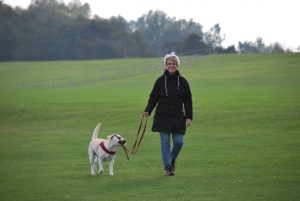
History is filled with stories of tragedy, upheaval and immense challenges. In Viktor E. Frankel’s book, “Man’s Search for Meaning”, he recounts his experience in a Nazi concentration camp and how he managed to wake up each consecutive day in the face of unending cruelty and depravation. Considering the vital message of mental strength and invaluable lessons described in his book that are and will be relevant for generations to come, I have been interviewing a cross-section of professionals with varying experiences and points of view. My findings are that as humans, who tend to find comfort in taking the easy, safe route, we sometimes ignore the lessons of history at our own peril.
Maya Angelou said, “History, despite its wrenching pain, cannot be unlived, but if faced with courage, need not be lived again.”
Our financial lives can change in a sudden heartbeat, without notice. Without careful preparation, awareness, and knowledge, you might be ill-equipped to handle the challenges if and when they occur. We want you to focus on your abilities and capabilities to handle anything life brings with a feeling of empowerment.
I recently spoke with Tegan Sorvino, LCSW, founder of Inspired Therapy in Short Hills, NJ. We discussed the idea of resilience and how we can create a pathway to better prepare for whatever challenges life presents. Her approach centers on proactiveness and positivity. The challenges we all face in life can be anywhere from daunting to crushing; but it doesn’t mean we need to throw up our hands and surrender. Instead, a smarter way to proceed is becoming aware and alert to the possibility of change in our lives and actively working on improving our capabilities. Here are Tegan’s thoughts and advice.
What is resilience?
Resilience is something we all possess; it’s the strength we tap into when situations occur that cause concern or fear.
Where does resilience come from?
Resilience is that part of us that gets us through some new or challenging circumstance or an unexpected disappointment that we must face. It is innate in all of us and we have been using it our entire lives. Without resilience, we would lose our compass and feel quite lost in the face of challenge or danger.
Why is resilience important?
Given the importance of resilience, it is beneficial to work on skills that will increase that ability. There are many ways to do this in our day-to-day lives and developing this practice will yield greater resilience when we need it the most. The challenges we face will be easier to handle; we reduce the potential stress of those events. The challenge itself can become a learning experience and can help us improve our approach to future situations. This approach to resilience as a lifelong cycle will deepen and broaden our skill set and enable us to handle things with a greater sense of control. This sense of control stays with us and affects our lives in an overall positive way. We then mitigate the risk for the event to snowball and affect other areas of our lives.
How do we build resilience?
Following are some of the ways that we can build resilience:
- Increase sense of control in areas of your life of which you have control. This could be in simple ways such as arriving on time, eating healthfully, employing good sleep habits and scheduling enjoyable types of exercise.
- Maintain perspective around challenges and resist the urge to see the event as insurmountable. This can be cultivated by applying that perspective to small difficulties throughout the day.
- Develop a positive self-concept; this can be accomplished in many small ways throughout your day. Notice and observe your adaptive abilities and feel appreciation for those skills. Shift to a positive mindset when you feel doubt or reservation. Taking this approach will enable the growth of those skills and, once seen, can be intensified.
- Those who have a faith practice have been shown to have more resilience in crisis. Hope is a powerful motivator and belief in it through some higher power creates the ability to sustain through demanding times.
- Meditation has been well researched and found to benefit our well-being in a variety of ways. Meditation changes the structure of the brain thereby creating a greater sense of overall peace and well-being.
- Extensive research has uncovered the following benefits of meditation:
- Greater emotion regulation
- Improves insight and the ability to employ broader perspective
- Decreases stress
- Lowers anxiety and depression
- Improves memory and focus
- Improves high blood pressure
How can we increase our awareness and ability?
Practice the skill of staying in the moment, develop this discipline by stopping yourself from reviewing past concerns and future fears. The book “The Power of Now” written by Eckhart Tolle is an excellent guide for this practice.
The task at hand is plain to see: be aware, be thoughtful of potential threats and be proactive! Thanks Tegan!


